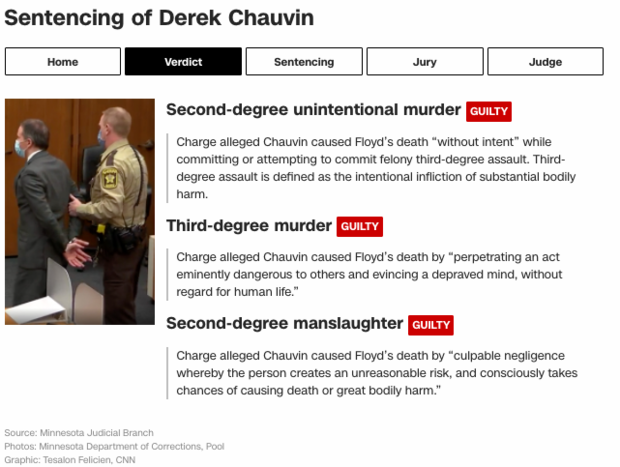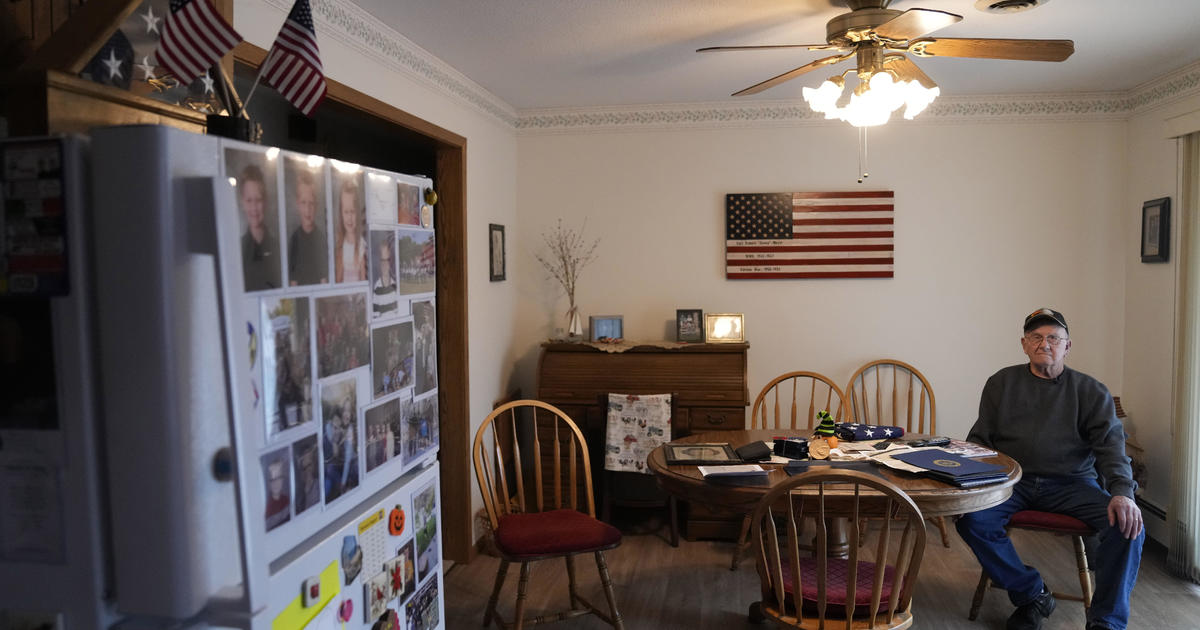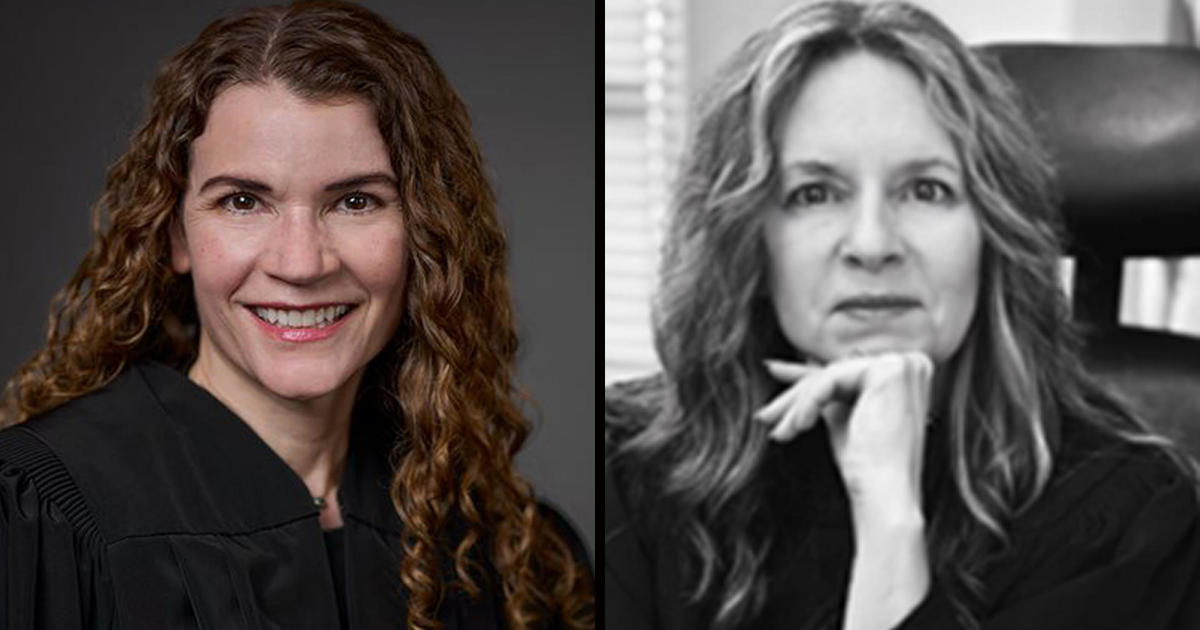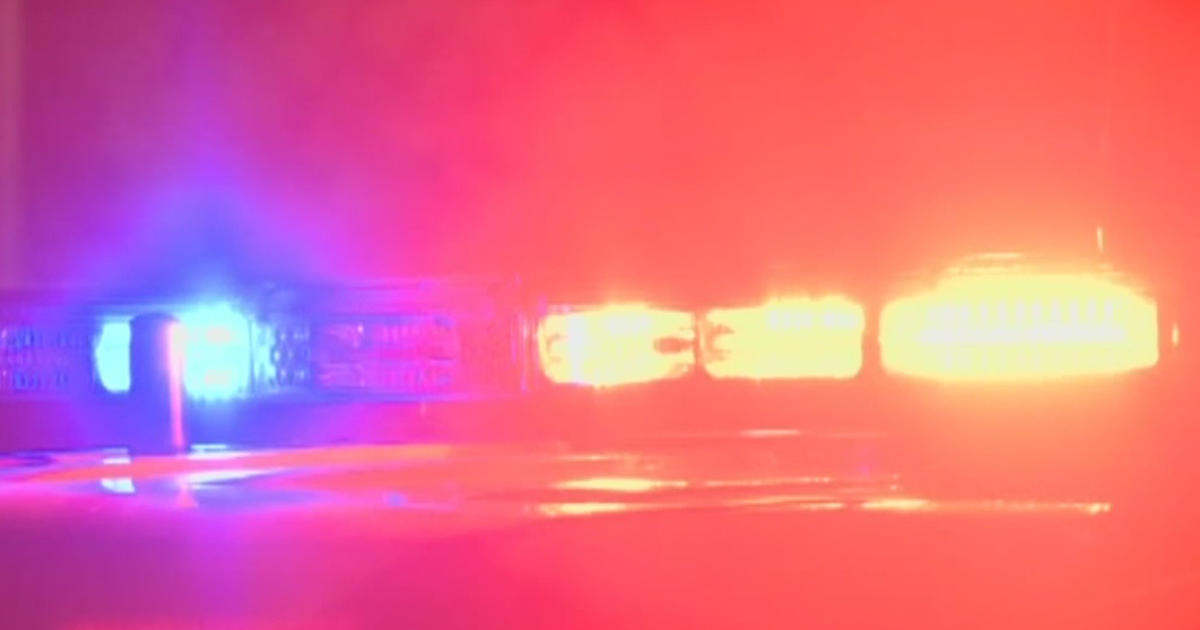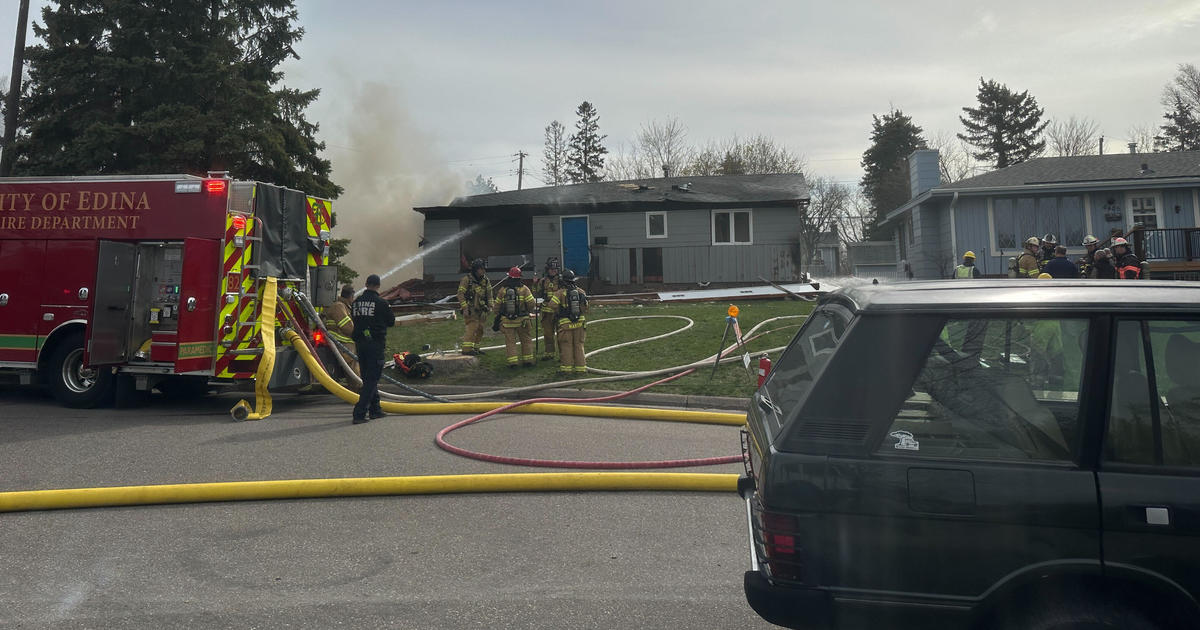Derek Chauvin Sentenced To 22.5 Years In Prison For Killing George Floyd
MINNEAPOLIS (WCCO) -- Derek Chauvin, the former Minneapolis police officer convicted of murdering George Floyd, has been sentenced to 22 and a half years in prison.
Chauvin was sentenced by Judge Peter Cahill Friday afternoon at the Hennepin County Government Center, though he left most of his reasoning to a 22-page document he did not read aloud in the courtroom.
"Part of the mission of the Minneapolis Police Department is to give citizens 'voice and respect.' Here, Mr. Chauvin, rather than pursuing the MPD mission, treated Mr. Floyd without respect and denied him the dignity owed to all human beings and which he certainly would have extended to a friend or neighbor," Cahill wrote. "In the Court's view, 270 months, which amounts to an additional ten years over the presumptive 150-month sentence, is the appropriate sentence."
The sentencing order indicates that Chauvin will be prohibited from owning firearms or ammunition following his sentencing, and will need to register as a predatory offender going forward.
Cahill also earlier denied Chauvin's motion for a new trial Friday morning as well as a motion for a Schwartz hearing.
"I acknowledge the pain not only of those in this courtroom, but the Floyd family who are outside this courtroom and other members of the community," Cahill said. "It has been painful throughout Hennepin County, throughout the state of Minnesota, and even the country."
With good behavior, Chauvin could be expected to spend roughly 13 or 14 years in prison, with time already served.
"Due to legal matters, I'm not able to give a full formal statement ... I give my condolences to the Floyd family, there's gonna be some other information in the future that will be of interest and I hope these will give you some peace of mind," Chauvin said prior to his sentencing.
Minnesota's Assistant Attorney General Matthew Frank, presenting the state's argument for sentencing, began by thanking -- in addition to the witnesses who testified, and Floyd's family members -- the police officers who also testified during the trial.
"Those officers didn't hide behind a blue wall. They came forward, they told this court and those jurors, what they knew about training and responsibility," Frank said. "This wasn't about all officers. This wasn't about policing. This case was about Derek Chauvin disregarding all that training he received and assaulting Mr. Floyd until he suffocated to death."
In April, Chauvin, 45, was convicted of second- and third-degree murder and second-degree manslaughter in Floyd's death. It took the jury roughly 10 hours of deliberation to reach their verdict. Floyd, who was 46 years old, died on May 25, 2020, after Chauvin, who is white, pinned him to the ground with a knee on his neck as the Black man repeatedly said he couldn't breathe.
A video of Floyd's murder went viral online and sparked mass protests and rioting in Minnesota and worldwide. It also prompted a national conversation on systemic racism and police brutality.
Tear-Filled Victim Impact Statements
Sentencing began Friday afternoon with victim impact statements from four members of George Floyd's family -- two of his brothers, his nephew and his daughter.
Prosecutor Jerry Blackwell started the proceedings with Floyd's 7-year-old daughter Gianna, who presented her statement via video.
"I ask about him all the time," she said. "I miss you and I love him."
Blackwell also presented statements from brother Terrence Floyd and nephew Brandon Williams.
"Our family is forever broken," Williams said, requesting Chauvin to receive the maximum penalty, a sentiment echoed by George Floyd's brother.
"We don't want to see no more slaps on the wrist. We've been through that already," Terrence Floyd said before addressing Chauvin. "What was going through your head when you had your knee on my brother's neck?"
Finally, brother Philonise Floyd was the last to give an impact statement, and he too asked for the judge to hand down the maximum sentence.
"For an entire year, I had to relive George being tortured to death," he said. "My family and I have been given a life sentence. We will never be able to get George back."
The defense for Chauvin called his mother, Carolyn Pawlenty, to speak prior to his sentencing.
"It has been difficult for me to hear and read what the media, public, and prosecution team believe Derek to be an aggressive, heartless and uncaring person," Chauvin's mother said. "Derek, I want you to know I have always believed in your innocence, and I will never waver from that. I will be here for you when you come home."
She looked her son in the eyes and said the happiest moment of her life was when she gave birth to him, and the second happiest when she pinned his police uniform.
"The public will never know the loving and caring man that he is but his family does. Even though I have not spoken publicly, I have always supported him 100% and I always will," she said. "My son's identity has also been reduced to that as a racist. I want this court to know that none of these things are true and that my son is a good man."
She concluded by telling him that he is her favorite son.
What's Next?
Three other former officers -- Thomas Lane, J. Alexander Kueng and Tou Thao -- were also involved in the arrest. Kueng and Lane helped to restrain Floyd — Kueng knelt on Floyd's back and Lane held down Floyd's legs. Thao held back bystanders and kept them from intervening during the roughly 9 1/2-minute restraint.
The state trial for Lane, Kueng and Thao is scheduled for March 7, 2022. Jury selection will start the following day, with opening statements set for March 28.
Before that, however, all four officers are still supposed to stand trial on federal charges.
Timeline Of Key Events Since George Floyd's Death
(AP) -- A timeline of key events that began with George Floyd's arrest on May 25, 2020, by four police officers in Minneapolis:
- May 25, 2020 — Minneapolis police officers respond to a call shortly after 8 p.m. about a possible counterfeit $20 bill being used at a corner grocery and encounter a Black man, later identified as George Floyd, who struggles and ends up handcuffed and face down on the ground. Officer Derek Chauvin uses his knee to pin Floyd's neck for about nine minutes while bystanders shout at him to stop. Bystander video shows Floyd crying "I can't breathe" multiple times before going limp. He's pronounced dead at a hospital.
- May 26 — Police issue a statement saying Floyd died after a "medical incident," and that he physically resisted and appeared to be in medical distress. Minutes later, bystander video is posted online. Police release another statement saying the FBI will help investigate. Chauvin and three other officers — Thomas Lane, J. Kueng and Tou Thao — are fired. Protests begin.
- May 27 — Mayor Jacob Frey calls for criminal charges against Chauvin. Protests lead to unrest in Minneapolis, with some people looting and starting fires. Protests spread to other cities.
- May 28 — Gov. Tim Walz activates the Minnesota National Guard. Police abandon the 3rd Precinct station as protesters overtake it and set it on fire.
- May 29 — Chauvin is arrested and charged with third-degree murder and manslaughter. President Donald Trump tweets about "thugs" in Minneapolis protests and warns: "When the looting starts, the shooting starts." Protests turn violent again in Minneapolis and elsewhere.
- May 30 — Trump tries to walk back his tweet. Protests continue nationwide and some turn violent.
- May 31 — Walz says Attorney General Keith Ellison will lead prosecutions in Floyd's death. The nationwide protests continue.
- June 1 — The county medical examiner finds that Floyd's heart stopped as police restrained him and compressed his neck, noting Floyd had underlying health issues and listing fentanyl and methamphetamine use as "other significant conditions."
- June 2 — Minnesota's Department of Human Rights launches a civil rights investigation into the Minneapolis Police Department.
- June 3 — Ellison files a tougher second-degree murder charge against Chauvin and charges the other three officers who were involved in Floyd's arrest.
- June 4 — A funeral service for Floyd is held in Minneapolis.
- June 5 — Minneapolis bans chokeholds by police, the first of many changes to be announced in coming months, including an overhaul of the police department's use-of-force policy.
- June 6 — Massive, peaceful protests happen nationwide to demand police reform. Services are held for Floyd in Raeford, North Carolina, near his birthplace.
- June 7 — A majority of Minneapolis City Council members say they support dismantling the police department. The idea later stalls but sparks a national debate over police reform.
- June 8 — Thousands pay their respects to Floyd in Houston, where he grew up. He's buried the next day.
- June 10 — Floyd's brother testifies before the House Judiciary Committee for police accountability.
- June 16 — Trump signs an executive order to encourage better police practices and establish a database to track officers with excessive use-of-force complaints.
- July 15 — Floyd's family sues Minneapolis and the four former officers.
- July 21 — The Minnesota Legislature passes a broad slate of police accountability measures that includes bans on neck restraints, chokeholds and so-called warrior-style training.
- Oct. 7 — Chauvin posts $1 million bond and is released from state prison, sparking more protests.
- Nov. 5 — Judge Peter Cahill rejects defense requests to move the officers' trials.
- Jan. 12, 2021 — Cahill rules Chauvin will be tried alone due to courtroom capacity issues. The other officers will be tried in August.
- Feb. 12 — City leaders say George Floyd Square, the intersection blocked by barricades since Floyd's death, will reopen to traffic after Chauvin's trial.
- March 9 — The first potential jurors are questioned for Chauvin's trial after a day's delay for pretrial motions.
- March 12 — Minneapolis agrees to pay $27 million settlement to Floyd family.
- March 19 — Judge declines to delay or move the trial over concerns that the settlement could taint the jury pool.
- March 23 — Jury selection completed with 12 jurors and three alternates.
- March 29 — Opening statements are given.
- April 11 — Daunte Wright, a 20-year-old Black man, is fatally shot by a white police officer during a traffic stop in suburban Brooklyn Center, sparking successive days of protest.
- April 12 — Judge declines request to sequester Chauvin jury immediately due to Wright shooting.
- April 15 — Testimony ends.
- April 19 — Closing arguments. Jury begins deliberations.
- April 20 -- Jury convicts Chauvin on murder and manslaughter charges.
- May 7 — Federal grand jury indicts Chauvin, Lane, Kueng and Thao on civil rights charges in Floyd's death.
- May 25 — A street festival, musical performances and moments of silence are held in Minneapolis and elsewhere to mark the one-year anniversary of Floyd's death, and Floyd family members meet with President Joe Biden in Washington to talk about continuing pursuit of police reforms.
(© Copyright 2021 CBS Broadcasting Inc. All Rights Reserved. The Associated Press contributed to this report.)
